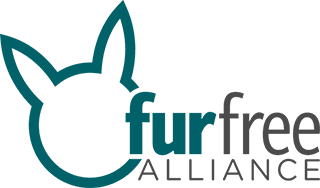
Joint Open Letter to the European Commission: Eliminating potential COVID-19 reservoir on EU mink farms
To: Commissioner for Health and Food Safety, Stella Kyriakides
Commissioner for Agriculture, Janusz Wojciechowski
We, the undersigned organisations, jointly call on the European Commission to immediately suspend the breeding of mink throughout the Union and urge Member States to take action to permanently prohibit fur production and/or bring forward existing phase-out dates for fur farming.
As the COVID-19 pandemic continues to rage across Europe, the undersigned organisations are hereby writing to you to express our urgent concerns about the continued existence of SARS-CoV-2 reservoirs on mink farms in the EU and the associated risks for public health, in addition to expressing our ongoing concerns about the poor welfare of animals on fur farms.
In recent months, the continuation of mink farming during this pandemic has generated growing concerns, as COVID-19 has affected more than 370 mink farms in at least nine Member States. It is crucial that the EU provides a strong and harmonised response to this critical public health issue.
Nature and scale of the problem
Mink are highly susceptible to SARS-CoV-2. The latest scientific studies demonstrate that American mink, as well as raccoon dogs, can act as a reservoir for the SARS-CoV-2 virus. It is therefore evident that mink – and most likely also raccoon dog – farming creates a potential reservoir for SARS-CoV-2 and future strains of the coronavirus. The virus can jump back and forth between humans and mink, with the potential for the virus to mutate in mink prior to infecting humans with new variants.
In April 2020, the first cases of SARS-CoV-2 were identified in mink farms in the Netherlands. In the months since, coronavirus outbreaks have continued to affect hundreds of mink farms not only in the Netherlands, but also in Denmark, Sweden, Greece, Spain, Italy, France and, most recently, new infections have been identified on mink farms in Poland and Lithuania.
Given that the rapid and uncontrolled spread of SARS-CoV-2 among mink farms has not been halted by the implementation of biosecurity measures, the animals have become the source of viral transmission to people; not only those who work on fur farms occupationally, but also the broader human community. Even more alarmingly, the uncontrolled spread in mink also increased the opportunity for the virus to evolve and develop potentially dangerous mutations. Evidence available on SARS-CoV-2 variants related to mink indicates that these variants are able to circulate rapidly on mink farms and the human communities close to the farms.
In Denmark, a mutation has been found in mink that may have led to a reduced response to antibodies. Apart from Denmark and The Netherlands, mink-related mutations in humans have also been found in South Africa, Switzerland, the Faroe Islands, Russia, Canada and the United States.
Views of Health Organisations and Member States
The European Centre for Disease Prevention and Control (ECDC) warned that the spread of SARS-CoV-2 variants via mink farms could compromise the efficacy of a vaccine. Furthermore, the World Organisation for Animal Health (OIE) and World Health Organization (WHO) have also shared concerns and called on countries to implement effective risk management measures, including actions to actively monitor susceptible animals, such as mink and raccoon dogs, as well as humans in close contact with them.
At the last European Agricultural Council meeting, in November 2020, Member States stated that this public health issue requires a strong and harmonised response at the EU level. Fourteen Member States have already decided to phase out and (sometimes partially) ban fur production while six Member States are currently considering respective legislative proposals. Several opinion polls have repeatedly highlighted that EU citizens have a very critical attitude towards fur farming and support the prohibition of the practice. The Austrian Federal Minister of Social Affairs, Health, Care and Consumer Protection announced an initiative for an EU-wide end of the fur industry for public health and animal welfare reasons.
The European Union must give a strong response
The presence, spread and genetic mutation of the SARS-CoV-2 virus on fur farms has become an EU-wide issue. Although we recognise the efforts undertaken by the EU to overcome the immediate health crisis, this important issue has not yet received a harmonised effective response at EU level.
Notwithstanding our unwavering position that fur farming should be permanently banned across the EU due to unacceptable animal welfare outcomes and future potential public health risks, in the interim the undersigned organisations urge the European Commission to adopt precautionary emergency measures and take a harmonised EU approach to COVID-19 in mink fur farms, by urgently suspending:
- all mink farming including breeding and;
- all in-country and cross-border transportation of live mink and their raw pelts, both inside and outside the European Union.
For your information, please find enclosed and here the Fur Free Alliance/Eurogroup for Animals’ position paper.
Yours sincerely,
List of organisations:
- AAP
- ANDA
- Anima International
- Animal Defenders International (ADI)
- Animal Rights Lithuania
- Animalia
- Bont Voor Dieren
- C’est Assez
- CAAI
- Catholic Concern for Animals
- Code Animal
- Deutscher Tierschutzbund (DTB)
- Dierenbescherming
- Djurens Rätt
- Djurskyddet Sverige
- Dyrenes Beskyttelse – Animal Protection Denmark
- Dyrevernalliansen
- Dzīvnieku brīvība
- Essere Animali
- Eurogroup for Animals
- FAADA
- Fondation Brigitte Bardot (FBB)
- Four Paws
- Fur Free Alliance
- GAIA
- GAWF
- Humane Society International/Europe
- Humanny Pokrok
- Ippothesis
- ISPCA
- LAV
- LFDA
- LNDC
- Loomus
- Luonto Liiton
- Menschen für Tierrechte
- Oikeutta eläimille
- OneKind
- One Voice
- Otwarte Klatki
- RSPCA
- Schweizer Tierschutz (STS)
- SEY
- Spolecnost pro Zvirata
- Tu Abrigo Su Vida
- Tušti Narvai
- VeGaia
- Vier Pfoten
- World Animal Protection

1. https://wwwnc.cdc.gov/eid/article/26/12/20-3733_article
2. Transmission of SARS-CoV-2 on mink farms between humans and mink and back to humans. Science, 10 November 2020: https://science.sciencemag.org/content/early/2020/11/09/science.abe5901
3. European Centre for Disease Prevention and Control. Detection of new SARS-CoV-2 variants related to mink – 12 November 2020. ECDC: Stockholm; 2020. . http s://www.ecdc.europa.eu/en/publications-data/detection-new-sars-cov-2-variants-mink
4.Recurrent mutations in SARS-CoV-2 genomes isolated from mink point to rapid host-adaptationLucy van Dorp, Cedric CS Tan, Su Datt Lam, Damien Richard, Christopher Owen, Dorothea Berchtold, Christine Orengo, François Balloux bioRxiv 2020.11.16.384743; doi: https://doi.org/10.1101/2020.11.16.38474
5. European Centre for Disease Prevention and Control. Detection of new SARS-CoV-2 variants related to mink – 12 November 2020. ECDC: Stockholm; 2020. . https://www.ecdc.europa.eu/en/publications-data/detection-new-sars-cov-2-variants-mink
6. OIE statement on COVID-19 and mink – 12 November 2020: https://www.oie.int/en/for-the-media/press-releases/detail/article/oie-statement-on-covid-19-and-mink/
7. SARS-CoV-2 mink-associated variant strain – Denmark, 6 November 2020: https://www.who.int/csr/don/06-november-2020-mink-associated-sars-cov2-denmark/en/
8. https://www.consilium.europa.eu/en/meetings/agrifish/2020/11/16/
9. https://www.furfreealliance.com/public-opinion/
10. https://www.ots.at/presseaussendung/OTS_20201119_OTS0185/anschober-es-braucht-ein-europaweites-ende-der-pelzzuchtindustrie



